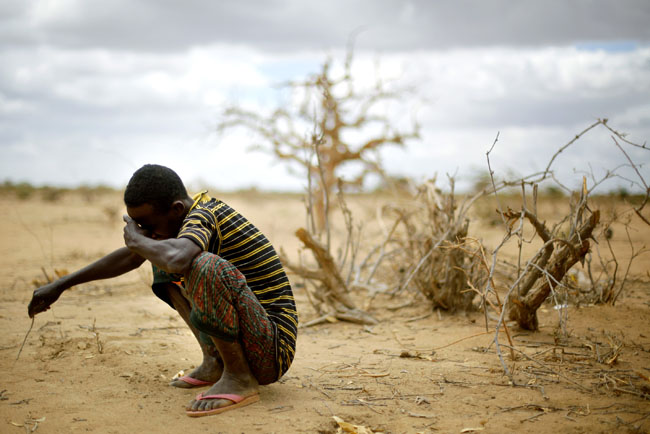
Secretary Clinton announced this week that the U.S. government is ramping up its assistance to East Africa to the tune of $100 million, as more than 13 million people in the region face food shortages. Commenting on the crisis during the same event at the State Department, Vice President Biden emphasized the role of the militant group al-Shabaab in exacerbating the famine. “The most cynical action of all, they endanger their own people by commandeering assistance sent by the rest of the world to the starving children and women of that country,” Biden said.
But less often emphasized, because of the political sensitivity, is the role that Somalia’s transitional government is playing in hindering the delivery of aid to those in need.
“Given the bizarre and extremist behavior of Shabaab, it is not clear that the West and the United Nations can realistically do much to help the 500,000 famine victims trapped in territory under its control,” writes Somalia expert Ken Menkhaus in a new paper for Enough. “But there is no excuse for famine-related deaths to occur in areas that the [Transitional Federal Government] controls.”
Menkhaus argues that the international community’s focus on the political transition in Somalia—on power-sharing agreements, formation of committees, and other transition-related tasks—is misplaced. “It sends the wrong message to TFG leaders: that the yardstick used to assess the TFG’s legitimacy and viability is progress in drafting constitutions and establishing committees rather than protecting the lives of its own citizens,” Menkhaus writes.
Describing the influence the international community could utilize with the TFG, Menkhaus points out that “leverage has consistently been the weak link” because the international community is more set on seeing the TFG succeed than the Somali leadership is itself. However, Menkhaus pushes for a focus on holding to account individual leaders complicit in diverting aid or who show know initiative to stop it. “The very act by donor states of exploring and creating a range of punitive actions against officials found guilty of blocking or diverting aid would have a chilling effect in TFG circles,” according to Menkhaus.
Read “Somalia: Peace-Building as if People Mattered” and then take action by signing Enough’s letter to USAID chief Raj Shah calling for a diplomatic surge to save lives threatened by the famine.
Photo: A father grieves his daughter's death in the famine in Somalia (AP)

